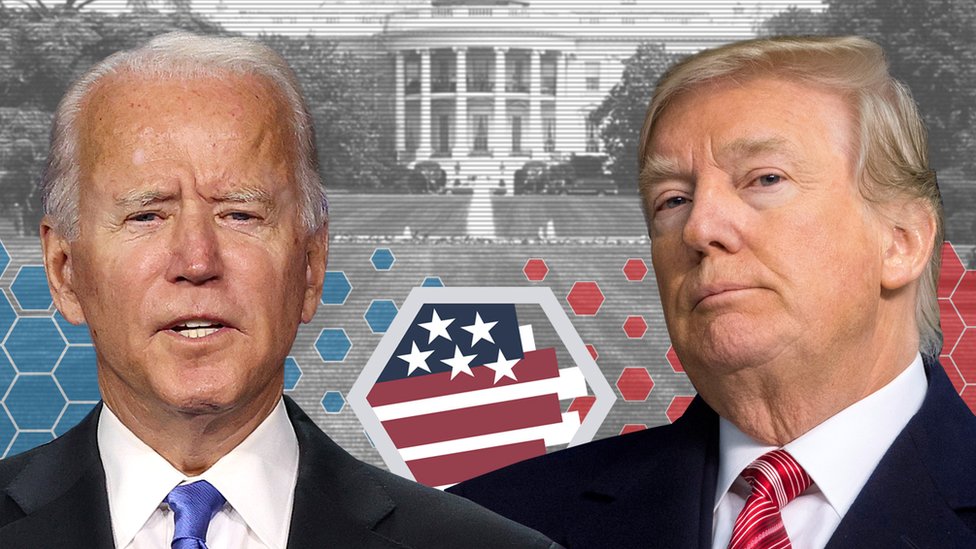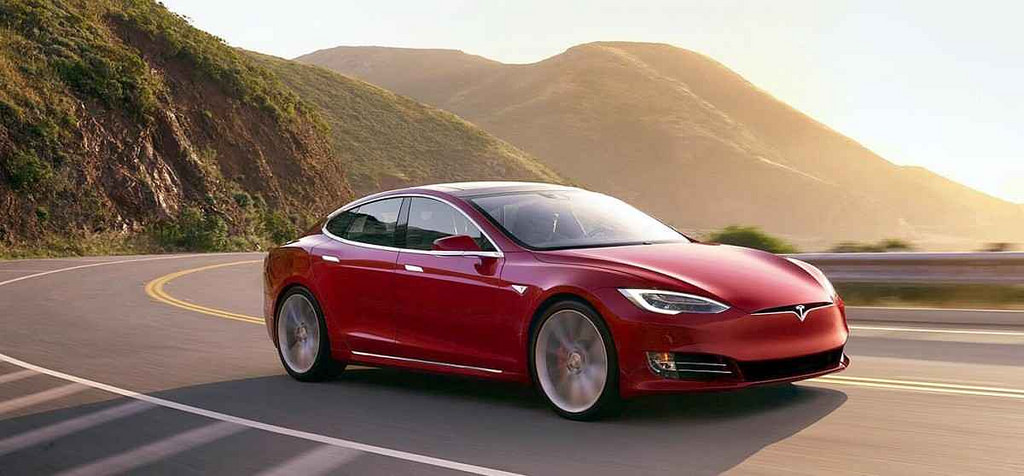What the next president does or doesn’t do over the next four years will have a profound impact on whether the world is able to avert the worst effects of climate change, scientists, policymakers and activists say.
They say the world needs a US president who cares about climate change, for two main reasons. First, many nations take their cue from US policy, particularly on issues such as the climate crisis, meaning Washington has a unique opportunity to influence. Second, the US is the world’s second-biggest polluter after China, meaning it has a moral obligation to act.
His Democratic challenger former Vice President Joe Biden, said at the same debate that “global warming is an existential threat to humanity. We have a moral obligation to deal with it.”
Biden’s comments echo what the scientists are saying. Global carbon dioxide concentrations — the main culprit warming the planet — are at higher levels than at any time in human history.
Under a US president who pushes for climate policies, however, the world could work toward “marginal, incremental damages” rather than catastrophic ones, said Jonathan Pershing, program director of environment at the William and Flora Hewlett Foundation, who was the former special envoy for climate change at the US Department of State during the second term of the Obama administration.
Pershing added: “Every succeeding election becomes more and more urgent because the time is shorter to manage those really grievous damages.”
The coronavirus pandemic, which has killed more than 230,000 and infected 9.1 million people in the US, has exposed that Trump’s administration is hostile to science and decades of research. That endangers lives and livelihoods, according to Kim Cobb, a professor and researcher of paleoclimate and climate change at Georgia Tech.
“It’s not really the planet anymore. It’s really about people. And that’s something that we all have to wake up to. It’s not about saving polar bears and coral reefs, it’s about us,” Cobb said. “We can simply not afford to put our heads in the sand about this other lasting global challenge which is a direct threat to our country.”
Why Paris matters
The Paris Agreement, a pact signed into effect in 2016 by almost all the world’s countries, seeks to limit global warming to well below 2°C and pursue efforts to limit it to 1.5°C. To do so, countries need to reach net-zero emissions by 2050.
“It’s critically important for the entire movement that the US be a part of it,” said Lois Young, Belize’s ambassador to the United Nations. “Other countries that are big emitters are saying, Well if the United States is not accountable, why should I be?”
At UN climate talks in Madrid last year, Young, who is also head of the Alliance of Small Island States, accused big polluters like the US of “ecocide.” She said the Trump administration’s policies on climate have been “a total disaster.”
“They have closed their eyes to the science,” she said, adding that fossil fuel emissions pollute and impact the whole world. “Emissions don’t have borders. We are all in this together, as we are with Covid. So what happens in America doesn’t stay in America. We all pay a price.”
“If Trump wins again, the chances of achieving anything like Paris compliance are very, very low. That’s the level we are at already,” said Tim Benton, who leads the Energy, Environment and Resources groups and the British think tank Chatham House.
“If Biden wins, there is much more space for ambitious climate action on a global basis,” he said, but warned it’s so late in the day for action to reduce the required emissions that “we still might not get to Paris levels.”
High stakes
In recent years, young people have been increasingly vocal about the climate crisis, demanding the issue remains on the international agenda.
“The future of all youth is at stake here, and there is no turning back if we pass the point of no return when it comes to our climate,” said Sohanur Rahman, a leading Bangladeshi youth activist and founding member of YouthNet for Climate Justice. “History will remember the course the next administration takes.”
“Every fossil fuel infrastructure that the United States builds affects me and my people, as well as those from vulnerable countries around the world,” said Rahman. He said the US needs to use its influence and wealth to “offer support to Bangladesh and other global south countries through technology transfer, renewable energy subsidies, and finance for climate mitigation.”
A continent away, young activists in Africa also say the US’ domestic policy on climate change has profound impacts on them, because the African continent and the Global South are facing some of the worst climate effects.
“US policy decisions, their ideological impact has been felt especially hard since the introduction of the Trump administration. Through their withdrawing from the Paris Agreement in June of 2017 and their continued investment in and support for climate change denial,” wrote Nick Ford, 17, and Petra de Beer, 16, in a joint email statement. They are activists with the Cape Town-based African Climate Alliance, a youth-led environmental and social justice group.
They say it’s vital the next administration is “strongly cognizant of their global impact and recognizes its obligations” which take place “through both the policy decisions of those in power within the US, and in the information which the US chooses to disseminate or suppress.”
Across Asia Pacific, the climate crisis has also affected people, ecosystems and livelihoods. Storm surges in the Philippines have become harder to predict and more intense, the Mekong River in Southeast Asia — a lifeline for 60 million people — is at its lowest level in 100 years, and rising sea levels are threatening megacities, such as Dhaka, Shanghai, and Jakarta or entire Pacific Islands.
Chuck Baclagon, finance campaigner for environmental group 350 Asia, said the US pulling out of the Paris Agreement was “an injustice for many Asian countries who are least responsible and have least benefited from the massive burning of fossil fuels in the past 150 years.”
Why the world needs the US to act on climate
Global solidarity, Baclagon said, is more important than ever. “With less than a decade to tackle the climate crisis, the United States’ involvement in climate action is extremely important.”
According to Baclagon, America could use its influence to lean on private financial institutions — including banks, insurance companies, and pension funds — that continue to invest in fossil fuels. “The onus is not solely on the United States — as several of the largest financial institutions are based in Asia. But if the new US administration will make clear that climate is back on top of their agenda, financial institutions worldwide will take notice,” he said.
Young said the world won’t succeed in reducing the necessary emissions, or adapting to the climate onslaught without America.
“On a scale of 1-10 without the US, we would be at a 6 in success. We need the US to take us over the finish line to 10,” she said. “You hate to say you are beholden or that you need one country but the fact of the matter is, we need the US.”
That’s because the US has the science, the technology, and the finance to move forward and “their influence is critical,” Young said.
“When it comes to climate leadership over the last four years, Europe in effect has stepped into the gap left by the United States, particularly working with China and low income countries,” said Chatham House’s Benton. “They have made some progress, but that is much less than would have been the case if you had a US-EU-China strong coalition.”
As part of the Paris Agreement, wealthy countries also pledged to mobilize $100 billion a year in climate funding for developing countries — something Trump said the US would not do under his administration. “And that’s where the biggest threat lies, because the US would be one of the major contributors to these funds, and that makes it much harder for the European Union to just stand in and say we can cover the American contribution … that would be really difficult to pull off,” said Robert Falkner, the Research Director of the LSE’s Grantham Research Institute on Climate Change and the Environment.
For some nations, like Australia, the outcome of the US election could determine in which direction they move on their own climate policy.
“What Washington says and wants reverberates very closely in Canberra,” said Frank Jotzo, director of the Centre for Climate and Energy Policy at Australian National University. “If Trump has a second term then we will see a hardening of Australia’s position not to do much, not to take on a stronger targets, not to declare a net zero target for middle of the century,” Jotzo said.
A Biden presidency, he said, would “put pressure for positive climate change policy on all its allies.”
Global momentum
The US being part of the Paris Agreement doesn’t ensure the world will avoid dangerous climate change.
Indeed, if governments stick to their current targets submitted under the Paris Agreement, the world is set to warm by 2.7°C by the end of the century, according to CAT, bringing more extreme storms, heatwaves, greater sea level rise, and, for many parts of the world, worse droughts and rainfall extremes.
Jotzo said what is likely to make the biggest difference is investment and innovations in clean energy from the private sector.
The price of renewable forms of energy, such as solar power, are now cheaper than the price of coal, and electric vehicles are becoming more affordable. Innovations in green tech are finding other ways to deal with other planet-warming gases like methane and refrigerants, and there has been innovation around zero-carbon steel.
“The long term trajectory is clearly towards very substantial reductions in greenhouse gas emissions,” Jotzo said. Zero emission technologies are now cost competitive with polluting technologies and “this creates an incentive for many corporates in many countries to actually push in that direction.”
Keeping fossil fuels in the ground, reducing emissions and stopping subsidies for coal and oil, as well as ramping up use of renewables is vital for limiting climate disasters and avoiding economic impacts worse than the coronavirus pandemic has wrought, Young said.
To achieve this, the US needs to be accountable, according to Young: “Covid will be overcome, the climate crisis cannot be overcome unless we have American leadership.”



